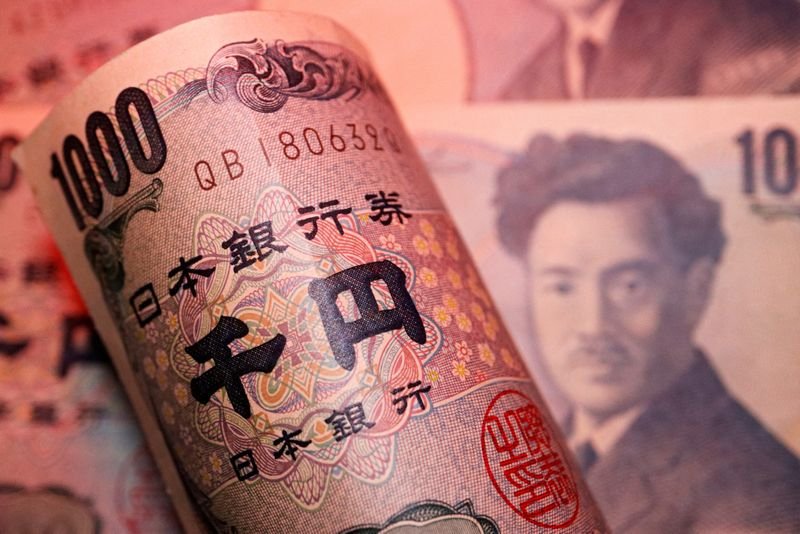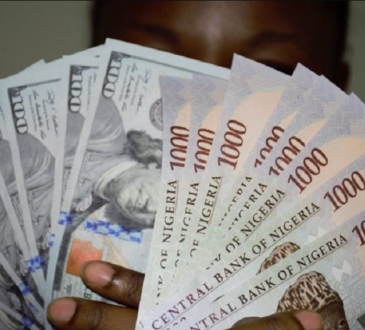By Amanda Cooper
LONDON (Reuters) -The yen steadied on Friday, a day after the Bank of Japan likely intervened to prop up the currency, on the coat-tails of an unexpected drop in U.S. consumer prices that fuelled the largest drop in the dollar since May.
The Japanese currency, which has been languishing around 38-year lows, strengthened rapidly on Thursday in the European afternoon, sparking speculation that authorities in Tokyo may have stepped in to buy.
This was just after the U.S. consumer inflation report for June showed prices were easing and boosted the odds of the Federal Reserve cutting rates as soon as September.
Daily operations data from the BOJ on Friday suggested the central bank had spent between 3.37-3.57 trillion yen ($21.18-22 billion) on buying the yen on Thursday, less than three months after its last foray into the market.
Tokyo’s top currency diplomat, Masato Kanda, said on Friday authorities will take action as needed in the foreign exchange market, but declined to comment on if authorities had intervened.
“Currency interventions should certainty be rare in a floating rate market, but we’ll need to respond appropriately to excessive volatility or disorderly moves,” Kanda said.
A separate report from the Nikkei news outlet said the BOJ had likely conducted rate checks for the euro/yen currency pair, which analysts said was not very common.
“There are two unusual things. Firstly, (rate-checking) the euro, which is a bit strange and secondly, normally, they (BOJ) do the rate checks before they intervene and this rate check came after the intervention,” Pepperstone markets analyst Michael Brown said.
“But I guess it just shows that trying to second-guess what the Ministry of Finance is going to do is almost impossible,” he said.
The MOF declined to comment on the report.
The yen was a touch weaker on Friday, leaving the dollar up 0.2% at 159.175.
The euro, which fell by as much as 3% on Thursday, was last up 0.3% against the yen at 173.255.
Tokyo intervened at the end of April and in early May, spending roughly 9.8 trillion yen ($61.55 billion) to support the currency. There will be a month-end report from Ministry of Finance that will confirm the amount spent on any intervention.
However, the yen has since gone beyond those levels, touching a 38-year low of 161.96 per dollar last week as the wide difference between U.S. and Japan rates weighed, with the currency down over 11% against the dollar so far this year.
This gap has created a highly lucrative trading opportunity, in which traders borrow the yen at low rates to invest in dollar-priced assets for a higher return, known as carry trade.
“It looks like it will be a volatile day today with markets nervous about intervention but carry still very attractive to short the yen and the shift in the fundamental story is only marginal after last night’s cooler U.S. CPI,” said Charu Chanana, head of currency strategy at Saxo.
CPI BOOST
The surge in yen was triggered after data on Thursday showed U.S. consumer prices fell for the first time in four years in June, firmly putting disinflation back on track.
Traders are now pricing in 93% chance of the Fed cutting rates in September, compared with 73% before the CPI reading, CME FedWatch tool showed. Markets are pricing in 61 basis points of easing this year.
The dollar index, which measures the U.S. currency against six others, was flat at 104.37, not far from the one-month low of 104.07 it touched on Thursday.
Elsewhere, the euro was up 0.15% at $1.08835, just below Thursday’s one-month high, while sterling was hovering close to the nearly one-year high hit on Thursday.
It was last at $1.2948 after data showed the UK economy grew more quickly than expected in May, which could reduce the chances of an August rate cut.
($1 = 159.2200 yen)
(Additional reporting by Ankur Banerjee in Singapore; Editing by Kim Coghill, Miral Fahmy and Arun Koyyur)





